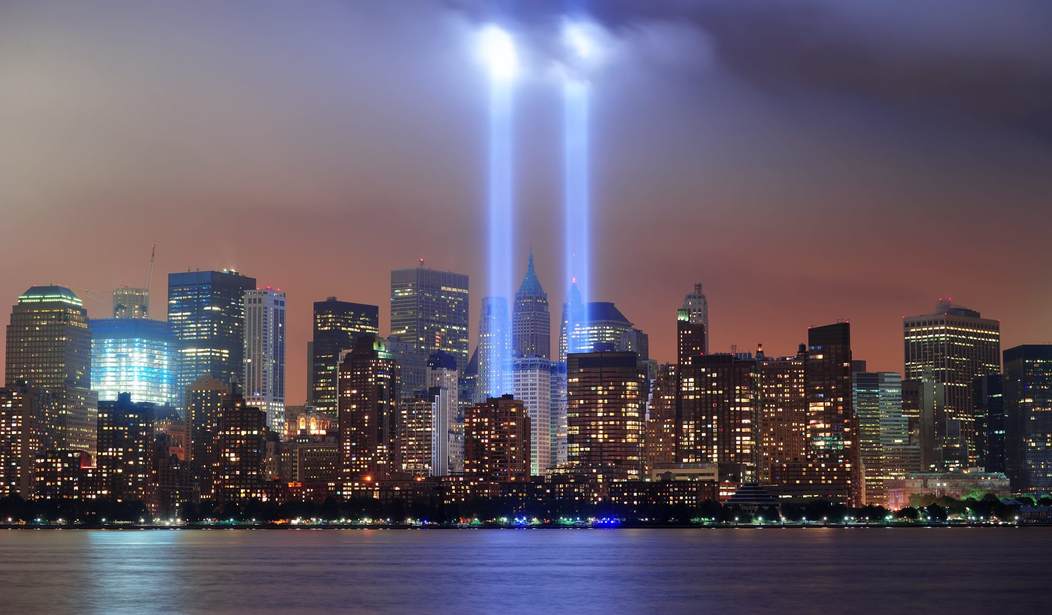On the 15th anniversary of the September 11 attacks, even after the release of the “28 pages” which revealed the involvement of Saudi Arabia, many questions remain unanswered. Why did the terrorists choose September 11 as the date for their attacks? One historical answer seems to have the most potential, but it is not without its critics.
“It was on September 11 1683 that the conquering armies of Islam were met, held, and thrown back at the gates of Vienna,” wrote Christopher Hitchens in Britain’s The Guardian less than a month after the attacks. He argued that “believers in propaganda by deed, like Gavrilo Princip [the man who carried out the assassination that started World War I] and Timothy McVeigh, usually choose to invest themselves with portentousness by selecting an anniversary that will freight their murder with meaning. Often, it is a date that only meant something to a very limited or arcane circle until its true value was unveiled to a stunned world.”
Of the 1683 Siege of Vienna, Hitchens wrote:
Now this, of course, is not a date that has only obscure or sectarian significance. It can rightly, if tritely, be called a hinge-event in human history. The Ottoman empire never recovered from the defeat; from then on it was more likely that Christian or western powers would dominate the Muslim world than the other way around. In our culture, the episode is often forgotten or downplayed, except by Catholic propagandists like Hilaire Belloc and GK Chesterton. But in the Islamic world, and especially among the extremists, it is remembered as a humiliation in itself and a prelude to later ones. (The forces of the Islamic Jihad in Gaza once published a statement saying that they could not be satisfied until all of Spanish Andalusia had been restored to the faithful as well).
Hitchens makes a strong case, and the battle indeed has some significance. The Ottoman Turks had attacked Vienna once before, in 1529, but that siege was short compared to the 1683 event, and while the Ottomans were repulsed then, they came back later. In 1683, the city was about to fall, the Turks had broken through the outer walls, and the siege had gone on for two months before the Polish King Jan Sobieski arrived to free the city.
On September 11-12, Sobieski led a contingent of knights to free the city, and some historians have said his attack was the largest cavalry charge in history. Others say that J.R.R. Tolkien, in The Lord of the Rings, took the inspiration for his “Ride of the Rohirrim” in the battle of Helm’s Deep from this event. To the minds of Westerners having read that book or seen the powerful film versions of the story, this is an attractive theory.
In his 2006 Pulitzer Prize-winning book The Looming Tower: Al Qaeda and the Road to 9/11, Lawrence Wright lent weight to Hitchens’ argument. According to him, Al Qaeda “perceived the contradiction embodied by Islam’s long, steady retreat from the gates of Vienna, where on September 11—that now resonant date—in 1683, the king of Poland began the battle that turned back the farthest advance of Muslim armies. For the next three hundred years, Islam would be overshadowed by the growth of Western Christian societies.”
Chillingly, Wright added, “Yet bin Laden and his Arab Afghans believed that, in Afghanistan, they had turned the tide and that Islam was again on the march.”
Next Page: “If not because of the Siege of Vienna, why 9/11?”
“If not because of the Siege of Vienna, why 9/11?” asked Faith McDonnell, director of the religious liberty program at the Institute on Religion and Democracy (IRD). “Islamic supremacists are always very aware of the significance of dates, and they have long, long memories and hold long, long grudges,” McDonnell told PJ Media in an email statement.
“They also have an enormous sense of pride and shame, and Islam was all set to take over the whole world and be the be-all and end-all of everything, i.e. caliphate. Then they got squashed. It was an enormous shock to them, and they never got over it,” McDonnell concluded.
Hazem Farraj, an American Christian minister and former Muslim, said he did think the terrorists chose September 11 for the significance of the 1683 Siege of Vienna. “The moment, for example, when news of Benghazi broke and it was on 9/11 … I assumed that was an attack and not a protest gone wild,” Farraj told PJ Media.
“As an ex-Muslim I can indeed confirm the idea that Muslims take a long view of history,” he added. “In fact, if you notice, the terrorist will still speak to Westerners as not just Westerners alone, but we are STILL ‘Crusaders.'”
He accused the “Saudi instigated propaganda machine, which had a comfortable nest egg inside DC bureaucracy,” of causing the Islamic State, because “it is essential for Islam to be propagated worldwide.” Farraj argued that the best thing to do in the Middle East is to secularize the region.
“In fact, the idea of a caliphate makes the most sense within the contexts of Western/Eastern clashes,” he explained. “For me, in the local mosques of Jerusalem, I vividly remember the lessons from the Friday sermon on the coming glorious caliphate. Not coincidentally, that was prior to the second intifada uprising.” This inspiring view of a caliphate prevailing over the Crusaders was an inspiration for Al Qaeda, Farraj argued.
If so, what better date to bring the West to its knees than the very anniversary of an Islamic empire’s stunning defeat at the hands of a Polish king?
Next Page: The case against the 1683 event.
Some disagree with the idea that the inspiration of September 11 was so clear cut, however. Daniel Hannan, a member of the European Parliament from Britain, refused to speculate on the motives of the terrorists when asked by PJ Media. “I’m sorry, I have no idea what was going through the minds of those sociopaths and psychopaths,” Hannan said. “A lot of them seemed fairly irreligious, if you looked at their lifestyles: They were drinkers, you wouldn’t use the word ‘pious’ to describe them.”
When asked specifically about the connection to the 1683 siege, Hannan said, “To be honest, I think there’s such a thing as over-interpreting. I think we’re dealing with a fairly recent phenomenon whose real explosion came with the Iranian Revolution. Going further back than that is of limited value.”
M. Zuhdi Jasser, founder and president of the American Islamic Forum for Democracy, also denied the connection. “I don’t believe the date has to do with that,” he told PJ Media. Al Qaeda “of 2001 is a Saudi creation from bin Laden, et al. and my theory, or guess is that the day coincided with the Islamic calendar day for the creation of Saudi Arabia and the day it was handed to House of Saud.” Jasser noted that Al Qaeda hated the relationship the House of Saud had with the West, and aimed to separate Saudi Arabia from the United States.
“That would make more sense than a caliphate date,” Jasser said.
Dr. David Stewart, professor of history at Hillsdale College, also expressed his doubts. He acknowledged the significance of the date and that the terrorists would likely have known it. “Yes, there’s no doubt that most educated Muslims are aware of the events surrounding Vienna as part of their national narrative,” and “certainly the people who would have committed themselves to an act of terrorism would have known,” Stewart told PJ Media.
That said, he considered it “unlikely that they chose it for that reason.” First, it sends “a very mixed message — it’s such a signal of defeat. Are they trying to commemorate the defeat or to reverse that defeat?” He argued that if they were commemorating a date, it would likely have been a more positive date. “It’s an odd thing to commemorate.”
Stewart also pointed out that there is no record of any Muslim leader confirming the connection between the 2001 attacks and the 1683 siege. “The closest thing to an allusion is bin Laden saying ‘the sword has been returned after 80 years,'” which clearly does not refer to a siege more than 300 years beforehand. Rather, bin Laden seems to be referencing one of two events: the creation of the Jewish state 79 years earlier, or the treaty ending World War I and dissolving the Ottoman Empire 81 years earlier. Since the proclamation of the Jewish mandate took place in September, Stewart said he thinks bin Laden’s remark referenced that event.
“I think what Hitchens saw is a really interesting coincidence but without further evidence, I don’t think it amounts to much,” the history professor stated, flatly. “I just don’t find it compelling. The fact that no academic has really taken that up is a suggestion that academics in general don’t find it a compelling argument.”
Stewart also argued that Westerners have not considered the 1683 siege to be a very momentous event. “In Vienna itself, the lifting of the siege was commemorated for centuries, but it fell out of favor in the 19th century,” he noted. Not very many books have been written about it in the last 100 years. “We don’t consider it a central moment,” when compared to the defeat of the Spanish Armada or the Russian Revolution.
“If the West collectively thought this thing mattered, there would be more than three books in the last hundred years,” he concluded.
Whether or not the 9/11 hijackers chose that date because of the 1683 siege, that siege deserves to be remembered, and September 11 now has a great significance in both the West and the Middle East. It is important to put both the expansion of Islam and the Crusades in historical perspective, and to listen to voices within Islam, like Jasser, who defend American freedom.









Join the conversation as a VIP Member